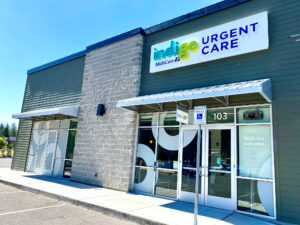Celiac Disease Self-Care involves a variety of things to help manage the symptoms and improve quality of life. Primarily, maintaining a strict gluten free diet is essential for managing Celiac Disease. This means avoiding foods that contain wheat, barley, rye or other ingredients derived from these grains.
Additionally, nutritional supplementation may be necessary to replace nutrients lost due to malabsorption caused by damage done by eating gluten proteins. Regular scheduled visits with healthcare provider can help monitor any potential complications related to Celiac Disease such as anemia or osteoporosis and overall health status. Exercise can also improve physical and mental well-being while helping reduce stress levels which are both common triggers for symptom flare ups in those living with Celiac Disease.
Living with Celiac Disease can be a challenge, but there are steps you can take to help manage your symptoms and live a healthier lifestyle. Self-care is an important part of staying healthy when living with Celiac Disease. Eating a gluten-free diet is essential for managing the disease, as well as being mindful of cross-contamination when preparing or eating food.
Additionally, getting regular physical activity and enough restful sleep on a daily basis can help reduce stress levels associated with the disease. Finally, talking to friends or family about your condition can be helpful in managing difficult emotions that may come up from time to time due to having Celiac Disease.
What 3 Foods Should Someone With Celiac Disease Avoid?
For someone with celiac disease, avoiding certain foods is crucial for maintaining their health and preventing further damage to their digestive system. The most important three foods to avoid are wheat, barley, and rye. Wheat can be found in many breads, pastas, cereals, crackers and other baked goods.
Barley can also be found in many processed foods such as soups and some breakfast cereals. Lastly rye is a type of grain used most commonly in breads and baking products like cakes or muffins.
In addition to these grains there are also countless food items that contain gluten which must be avoided at all costs by those with celiac disease including anything made from oats unless it has been certified as gluten-free oat sources due to cross contamination risks during processing; any food containing malt including beer; soy sauce (unless labeled gluten-free); modified food starch unless it’s derived from corn; hydrolyzed vegetable proteins; imitation bacon bits or croutons on salads; graham flour/crackers/cereal/doughnuts; bran cereal or muffins; prepared sauces like cream soups or gravies not labeled as “gluten-free” etc..
It is very important for individuals with celiac disease to become aware of the ingredients contained in all types of processed foods they eat – especially those containing wheat, barley or rye – if they want to maintain optimal health and prevent additional issues associated with the condition.
How Do I Soothe My Stomach With Celiac Disease?
If you have celiac disease, it can be difficult to soothe your stomach. Fortunately, there are some simple things you can do to help ease the uncomfortable symptoms associated with this condition. One of the most important steps is to follow a strict gluten-free diet that eliminates any foods containing wheat, barley or rye.
Additionally, eating smaller meals throughout the day instead of heavy meals all at once may help reduce discomfort and bloating after eating. It’s also beneficial to drink plenty of water throughout the day as well as avoiding carbonated drinks and caffeine which can irritate an already sensitive stomach. Probiotics such as yogurt or kefir may also be helpful in calming your digestive system by introducing friendly bacteria into your gut microbiome.
Supplementing with digestive enzymes before each meal may also aid digestion and reduce symptoms associated with celiac disease such as abdominal pain and diarrhea. Finally, adding fiber-rich fruits and vegetables into your daily diet will promote regularity while helping you feel fuller for longer periods of time without triggering further stomach upset due to their low FODMAP content (fermentable oligosaccharides disaccharides monosaccharides and polyols). By following these tips, you should find relief from gastrointestinal distress caused by celiac disease in no time!
Can You Take Anything to Help With Celiac Disease?
Living with celiac disease can be a challenge, but there are ways to manage symptoms and reduce discomfort. One way is to take certain supplements that help support health for those living with the condition. Supplements such as probiotics, digestive enzymes, omega-3 fatty acids and vitamin D have all been shown to provide some benefit in managing the symptoms of celiac disease.
Probiotics help restore balance in the gut by introducing beneficial bacteria which helps support digestion; digestive enzymes aid in breaking down food particles so they can be better absorbed by the body; omega-3 fatty acids reduce inflammation associated with celiac disease; and vitamin D plays an important role in both bone health and immunity. Additionally, avoiding gluten-containing foods is key to managing this condition – following a gluten free diet is essential for symptom relief. There are also lifestyle changes you can make including getting enough sleep, exercising regularly, reducing stress levels and eating healthy meals that contain plenty of fruits and vegetables.
With proper management of your condition through these practices along with taking certain supplements tailored specifically towards supporting your needs as someone living with celiacs, you’ll find yourself feeling healthier than ever before!
What Not to Drink With Celiac Disease?
People with celiac disease should avoid drinking drinks that contain ingredients derived from gluten grains. This includes beers, ales, lagers, and malt beverages. Additionally, some alcoholic drinks are made with barley or wheat-based ingredients (such as whiskey) which should be avoided by those with celiac disease.
Some wines may also have a trace of wheat gluten in them; it is best to look for labels that say ‘gluten-free’ when purchasing wine. It is also important to note that many pre-mixed alcoholic cocktails may include gluten ingredients such as beer or malt syrup; again these products should be avoided by someone with celiac disease. Lastly, watch out for non-alcoholic beverages such as juices and sodas which may contain hidden sources of gluten – always check the label before consuming any beverage!

Credit: www.everydayhealth.com
Foods to Avoid With Celiac Disease
People with celiac disease should avoid all foods that contain gluten, which is found in wheat, rye and barley. Foods such as breads, pastas, cereals, cakes and cookies made from these grains should be avoided. Additionally, some processed foods can have hidden sources of gluten including soy sauce, soups and salad dressings.
It is important to read food labels carefully to ensure a product does not contain any form of gluten before consuming it.
Celiac Disease Medication
Celiac disease is an autoimmune disorder in which the body reacts to gluten, a protein found in wheat, barley and rye. While there is no medication specifically designed to treat celiac disease, medications may be prescribed to help manage symptoms associated with it. Commonly used drugs include pain relievers, antacids and anti-diarrheal medications as well as vitamins and minerals supplements for malabsorption problems caused by impaired digestion due to the condition.
Other treatments that can help manage symptoms are dietary changes such as eliminating gluten from your diet completely or following a low-FODMAP diet (low Fermentable Oligosaccharides Disaccharides Monosaccharides And Polyols).
Treatment for Celiac Disease in Adults
Celiac disease is an autoimmune disorder that affects the digestive system and can cause significant damage to the small intestine if left untreated. Fortunately, there are treatments available for adults with celiac disease that help reduce symptoms and promote a healthier lifestyle. Treatment typically includes following a strict gluten-free diet, as well as taking certain medications or supplements to improve digestion and nutrient absorption.
Additionally, regular visits with a doctor to monitor progress and adjust treatment plans accordingly may be necessary. With appropriate care and attention, individuals living with celiac disease can lead normal lives without fear of severe health complications.
Celiac Disease Test
Celiac Disease is an autoimmune disorder that affects the digestive system and can be diagnosed with a blood test. The celiac disease test looks for specific antibodies in your blood which are produced when you have been exposed to gluten, a protein found in wheat, barley and rye. A positive result from this test may indicate that you have Celiac Disease; however, further testing such as an endoscopy or biopsy may be required to confirm the diagnosis.
Celiac Disease Symptoms in Females
Celiac Disease is an autoimmune condition in which the body’s immune system is triggered by the consumption of gluten, a protein found in wheat, barley and rye products. For women with Celiac Disease, common symptoms can include abdominal pain and bloating after eating foods containing gluten, constipation or diarrhea, fatigue, anemia (low iron levels), headaches, joint pain or bone loss. Other less common symptoms experienced only by females may include missed menstrual periods or other reproductive issues such as infertility.
It is important to check with your doctor if you experience any of these signs or symptoms to determine if testing for Celiac Disease should be done.
New Pill for Celiac Disease
A new pill recently approved by the U.S. Food and Drug Administration offers hope for people suffering from Celiac Disease, an autoimmune disorder caused by gluten intolerance that can cause abdominal pain, gas, bloating and other symptoms. The pill, which is taken with meals containing gluten, contains an enzyme called tisagenlecleucel-T that helps break down gluten proteins as they are digested in the intestines to reduce symptoms of Celiac Disease. This new treatment option is a major advancement for those living with this disease who previously had limited options for managing their condition.
Celiac Disease Diet Plan Pdf
A celiac disease diet plan pdf can be a helpful resource for anyone suffering from the condition. It provides guidance on which foods to avoid, as well as suggested food substitutions that are safe for those with celiac disease. Additionally, it offers tips and recipes for healthy eating that will help reduce any gastrointestinal symptoms associated with the autoimmune disorder.
By following a gluten-free diet, individuals with celiac disease can improve their overall health and wellbeing.
Celiac Diet for Beginners
Celiac Disease is a serious autoimmune disorder that affects the digestive system and can cause serious health complications if left untreated. Following a strict gluten-free diet is the only treatment for people with Celiac Disease. For those just starting out, it can be overwhelming to figure out what you should and shouldn’t eat on this restrictive diet.
Fortunately, there are plenty of resources available to help guide beginners through their transition to a healthier lifestyle free of gluten. It’s important for those following a celiac diet to read labels carefully, avoid cross contamination and become familiar with ingredients that contain hidden sources of gluten in order to ensure they are still getting all essential vitamins and minerals from their diets while avoiding potential triggers or flare ups.
Conclusion
This blog post has provided a comprehensive overview of the key elements in self-care for those with celiac disease. Self-care is an important part of managing this condition and can include dietary changes, lifestyle modifications, physical activity, stress management, and support from family and friends. With proper care, individuals living with celiac disease can lead healthy lives.
It’s clear that taking proactive steps to manage one’s health is the best way to stay healthy and happy despite having this debilitating condition.






